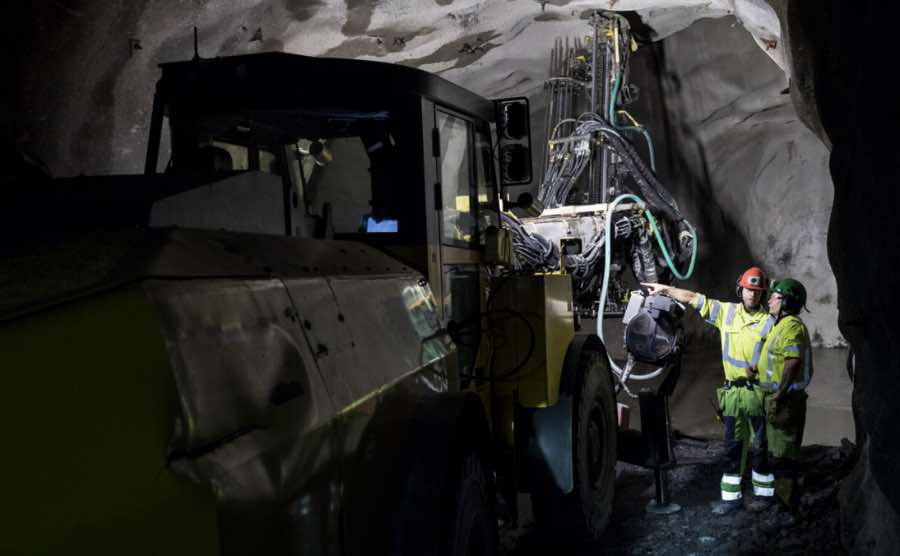
Tait Communications supplied its PTToX (push-to-talk over Broadband) solution to interconnect two networks, a two-way radio system and a 4G LTE system, for an underground mine in Sweden.
The company sold it's communication system to Zinkgruvan Mining AB, an underground mine in south-central Sweden owned and operated by the Lundin Mining corporation, a Canadian base metals mining company. It comprises of an underground mine, a processing plant and associated infrastructure. The mine produces zinc, lead and copper concentrates. Zinkgruvan is expected to produce 75,000-85,000 tons of zinc (0.65% of global production) and 4,000 – 5,000 tons of copper in 2024.
The mine is accessed principally via three shafts. The primary P2 shaft provides hoisting and man access to the 800m and 850m levels with the shaft bottom at 900m. A ramp system is used to access mine levels below the shaft with the deepest level now approximately 4,600ft (1,400m) below the surface. A ramp connecting the underground workings with the surface provides direct vehicle access to the mine. Concentrates of copper and zinc travel across 2.5 miles (4km) to impoundments for processing and collection for transport to the inland port of Göteborg on Lake Vänern, the largest lake in Sweden.
Zinkgruvan Mining has an existing Tait DMR Express 20 two-way radio system with 6 radios sites and approximately 750 users. It also has a separate broadband 4G LTE communications system in place.
The company wanted to integrate the LTE-based voice communication system with the existing two-way radio system.
The main task involved creating a combined communications solution, which allows seamless voice calls to and from DMR radios and LTE devices. It was essential that the LTE devices are integrated into the existing two-way radio talk groups, The ability to support private calls from radios to LTE devices and vice versa was an absolute necessity.
The main impetus behind the installation of a private LTE system is to create a platform for further digitalization, support autonomous vehicles and enhance automatization – all key drivers to make the mine more efficient, safer and less costly to operate.
LTE will provide the platform for improved tagging and a new means of voice communication. The existing DMR radio system covers all areas of the mine, while the LTE system only provides coverage in one third of the underground tunnel, typically those areas with active production.
The majority of the mine staff work in areas with LTE coverage and were not keen on carrying two communications devices. The major requirement, therefore, was to integrate the existing DMR Tier 3 trunked radio system with an LTE-based PoC (Push-to-Talk over Cellular) system. This ensures all staff can communicate with each other at all times across the entire underground mine and surface areas.
Another key requirement was that all users have access to the same functions and features whether using a DMR radio or an LTE-based device.